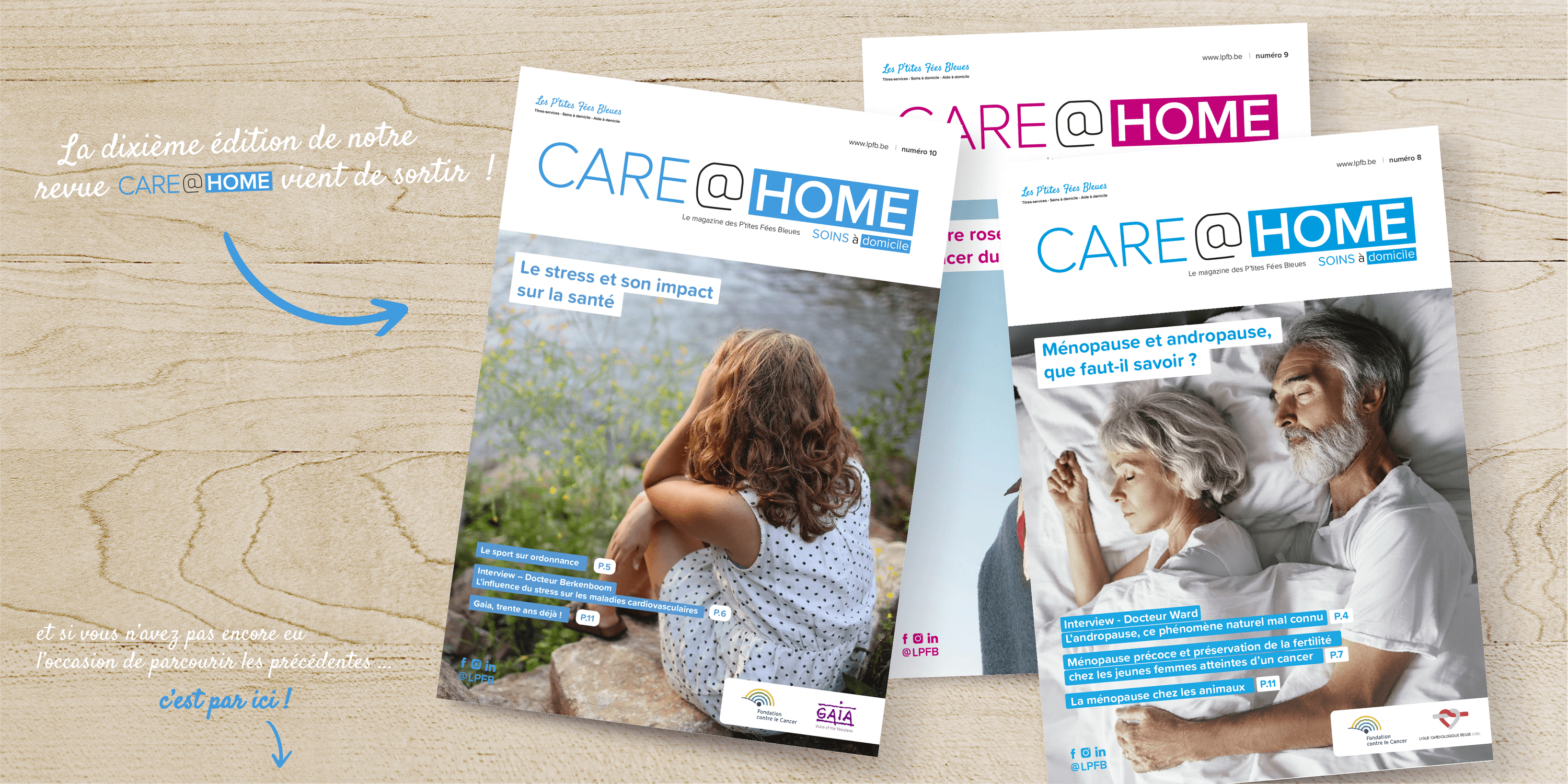The tenth edition of Care@Home magazine focuses on stress: its ills, its influence and its impact on our health.
Since COVID-19, the WHO has seen a global rise of 25% in cases of anxiety and depression. These are directly related to the stress of the pandemic.
Although stress is a normal reaction of the body that allows us to adapt to a change in environment, it is no less harmful when it becomes chronic. It can be the trigger for various psychological or physical health problems!To soothe stress, many over-the-counter medications have emerged, but are they suitable for everyone?
You will discover in this edition the various impacts that stress can cause on health as well as the advice of our professionals to reduce it.


